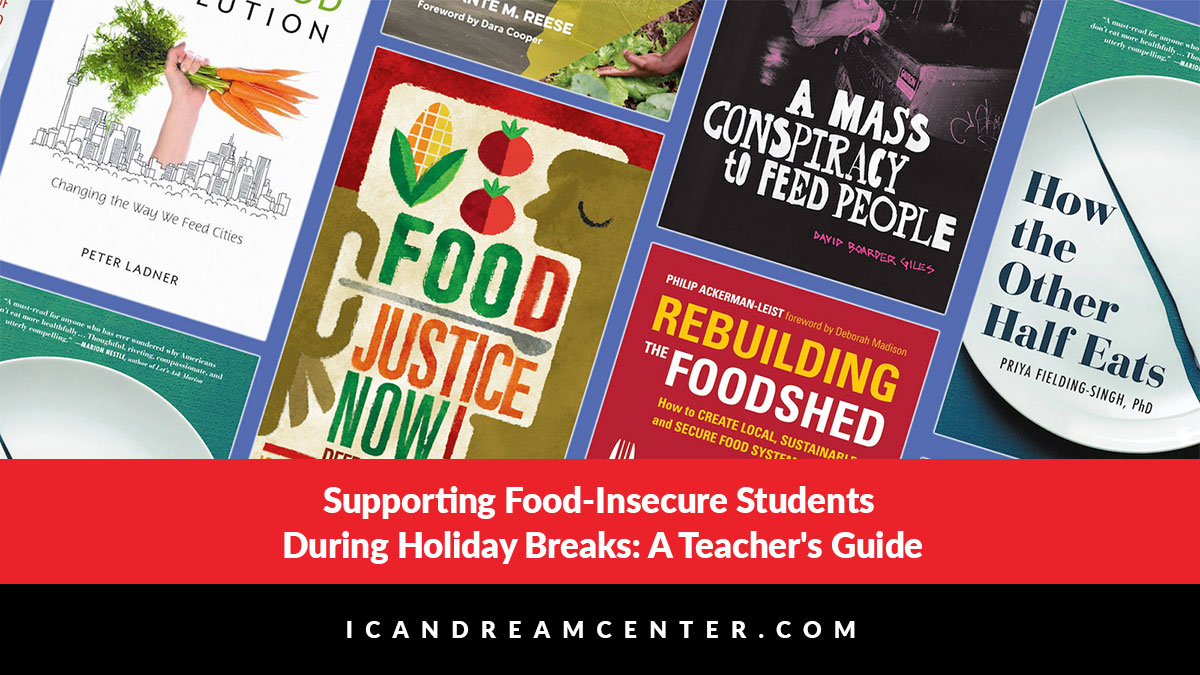
Supporting Food-Insecure Students During Holiday Breaks: A Teacher’s Guide
Holiday breaks are a joy for many. However, for some of our students, it can be a time of heightened insecurity, particularly when it comes to food. As educators, we have a unique opportunity to support these students and their families during holiday breaks. In this blog post, we’ll explore some strategies for teachers to help alleviate food insecurity among their students during these times.
Raise Awareness: The first step in addressing food insecurity among students is to recognize that it exists. Talk to your colleagues, school leaders, and school social workers to understand the extent of the issue in your school community. By raising awareness, you can work together to find solutions and support systems for those in need.
Provide Resources: During holiday breaks, many students who rely on school for food may struggle to access nutritious food. As a teacher, you can help by providing information about local food banks, community organizations, or government assistance programs that offer support during this time. Share this information with your students and their families, ensuring they know where to turn for help.
Create a Safe Space: For students experiencing food insecurity, the holidays can be a particularly stressful time. Create a safe and supportive environment in your classroom where students feel comfortable discussing their needs and seeking assistance. Let them know that it’s okay to ask for help and that you’re there to support them in any way you can.
Offer Meals or Snacks: If possible, consider providing meals or snacks for students during holiday breaks. This could be as simple as keeping a stash of non-perishable food items in your classroom or organizing a potluck meal before the break begins. By ensuring that students have access to nutritious food, even when school is not in session, you can help alleviate some of their food insecurity.
Empower Students: Encourage students to take an active role in addressing food insecurity in their community. Whether it’s organizing a food drive, volunteering at a local soup kitchen, or advocating for policy changes, empower your students to make a difference. By involving them in these efforts, you not only provide practical support but also help build their confidence and leadership skills.
Offer Emotional Support: Food insecurity can take a toll on students’ mental and emotional well-being. Be mindful of the challenges they may be facing and offer a listening ear and words of encouragement. Let them know that they are not alone and that there are people who care about them and want to help.
Educate and Advocate: Use your platform as an educator to educate others about the issue of food insecurity and advocate for policies and programs that address it. Write letters to policymakers, participate in community meetings, or engage with local organizations working on food justice issues. By raising awareness and advocating for change, you can help create a more equitable society for all.
As teachers, we have a responsibility to support our students, especially those who are experiencing food insecurity. By raising awareness, providing resources, creating a safe space, offering meals or snacks, empowering students, offering emotional support, and advocating for change, we can make a meaningful difference in the lives of our students during holiday breaks and beyond. Together, let’s work towards a future where every child has access to the nutritious food they need to thrive.
